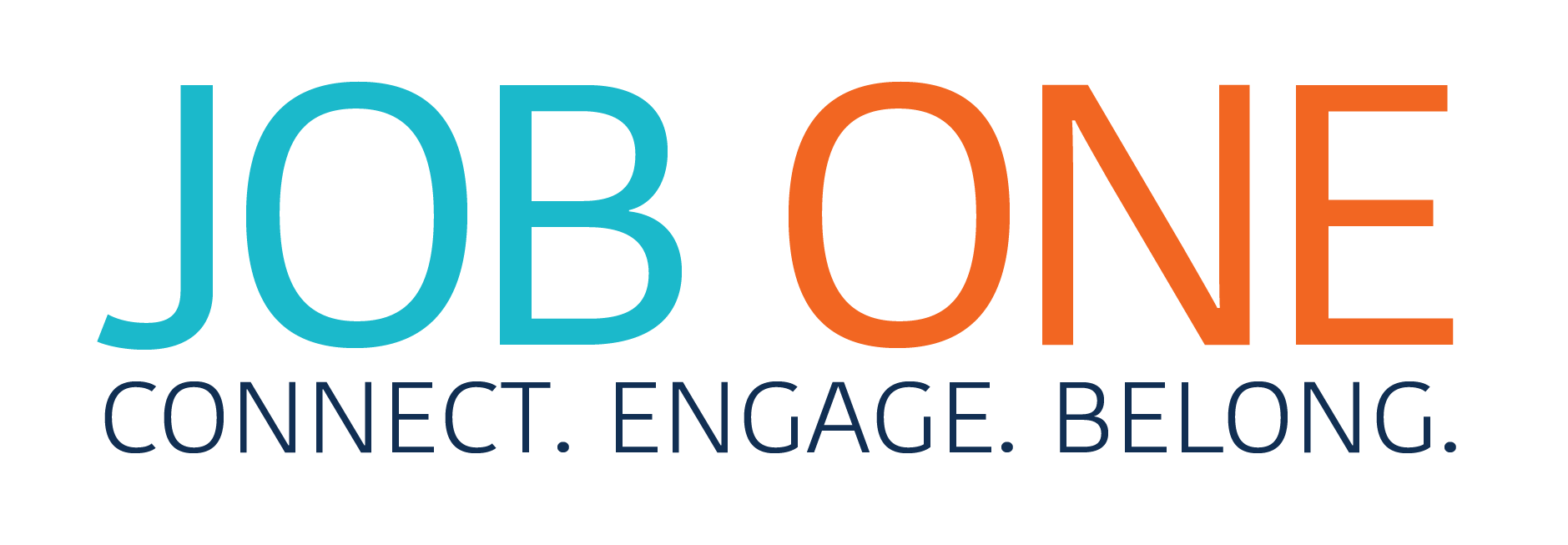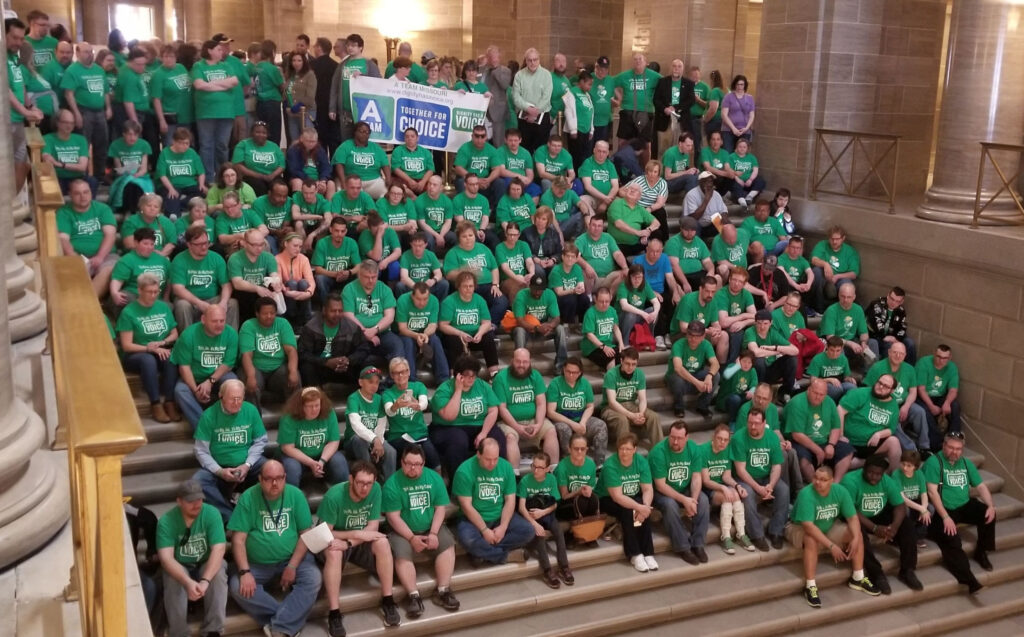On Tuesday, April 16th, the local chapter of the Missouri A-Team (“A” stands for Advocacy) comprised of Job One employees, family members and friends, attended “A Day for Choice” at the Capitol in Jefferson City, Missouri. They joined other A-Team groups from across the state to advocate for themselves and their rights to job choices – in both community and sheltered workshop environments. Job One employees spoke one-on-one with legislators to educate them on the challenges faced by individuals with disabilities and the value of job choice for those who have various levels of disability.
Job One spoke with a Paula Howard (the mother of a Job One employee Katie Howard, who attended SourceAmerica’s 2018 Grassroots Conference) about the importance of attending advocacy events and how every individual’s voice and job choice matters.
1) What does it mean to be an advocate, in your opinion?
An advocate is someone who fights for the rights of those who can’t and the advocate uses their all to help those in need.
2) Why are days like “National Day for Choice” so important?
It allows people who may not know that there are these needs out there and also keep the info front and center for those who need help.
3) How has having a job benefited your daughter Katie? And you?
Having the job at Job One has been so helpful for Katie’s social skills, giving her the purpose for her life and lets her know she matters in this world! For me, it has done the same for me as Katie because of my need to work I had no way to get her to the training she might need to get a competitive job. At Job One they have a ride to work a ride home and all this with supervisors who care about them and they are able to eat lunch with people who are their friends.
4) Why is it so important for adults with disabilities to have employment choices?
If they don’t have the choice they could end up sitting at home doing nothing or video games with no social skills and a very boring blah life. Also maybe ending in a group home because they cannot get along at home due to not feeling good about themselves.
5) How have you seen disability advocacy grow in recent years? What’s helped.
First of all the workshop has been instrumental in letting me know how to get involved. I used to think my Special Olympics coaching was what I could do to make a difference, now I am aware of the Advocacy program and know I can also help there. Reps will know exactly what their constituents want to be voting on.

